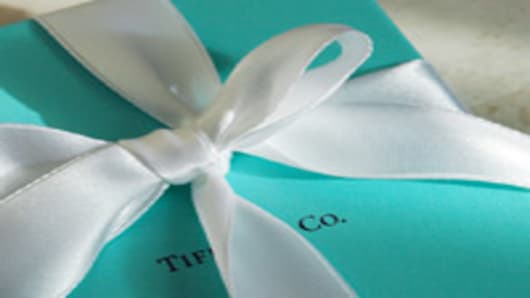Although creating lower entry points sometimes has a negative effect on a brand's reputation, a decrease this modest — one that maintains prices similar to other luxury brands — most likely won't cause a decline in Coach's status, analysts said. Whereas the average price for a Coach bag through December 2008 was around $340, the average price on Poppy bags will be between $235 and $240, according to Citigroup.
"It's alright to migrate price a little, [and] it's OK to appeal to consumers a little differently than you used to," said David Schick, a retail analyst at Stifel Nicolaus. "It's OK to adapt to the new norm."
Schick told CNBC he also expects Tiffany to perform strongly in the post-recession economy, pointing to its survival through other tough environments for high-end retail, including the Great Depression and both World Wars.
Although Tiffany reported a net sales decrease of about 16 percent in the most recent quarter, its stock has shot up above $35 since hitting a bottom near $17 in March. Similarly, Coach shares have soared toward $30 after hitting a 2009 low near $12, and on Tuesday, Bank of America-Merrill Lynch upgraded the designer handbag maker’s status to "buy".
And despite the sales declines in Saks and Nordstrom, their shares are up significantly on the year.
"Marketers must learn that the growth path to success is not a straight line, and variances occur along the journey of life," Shansby said. "Brands that discount, offer lower 'deals' and change their direction for temporary gain will succumb to a form of suicide."
Ultra-luxury brands, such as Chanel and Gucci, will likely bounce back quicker than affordable luxury because they faced such a severe drop, Shick said. What's more, buyers of affordable luxury range among a wider economic spectrum, so their return to high-end spending will be on a more case-by-case basis. But in the long-term, affordable luxury brands that offer high-quality products will have more staying power, Greenberger said.
"We think value and expecting more out of every dollar that consumers spend is here to stay," she said. "Coach, given the heritage of quality and durability coupled with the more recent push into better design and greater innovation, we think does absolutely fit into the sweet spot of what Americans are likely to look for in their products going forward."
More from Consumer Nation:
Questions? Comments? Email us at consumernation@cnbc.com




